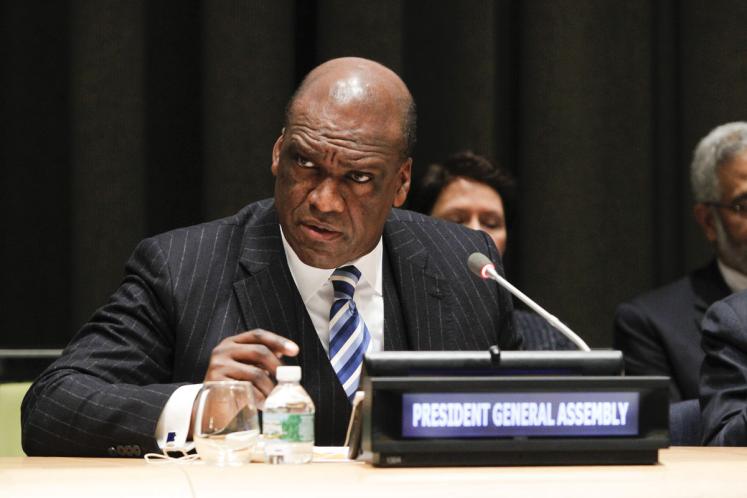On 6 October 2015, the President of the 68th Session of the United Nations General Assembly, the former Antigua and Barbuda diplomat John Ashe, was arrested by US authorities on corruption-related charges. Manhattan Prosecutor Preet Bharara suggested that Ashe, who presided over the General Assembly between September 2013 and September 2014, had “sold himself and the global institution he led” by accepting bribes worth more than $1.3 million to promote the interests of business executives, including a Chinese developer seeking support for the construction of a UN conference centre in Macau.
In an earlier article, I pointed out that this scandal came in the same week as a corruption scandal at FIFA – and that FIFA actually had better controls in place for responding to such misconduct than do the UN’s intergovernmental bodies. While the allegations by US authorities suggest that Ashe used the office of President of the General Assembly as a bargaining chip for his own financial gain, there is little that the UN could do about it under existing arrangements – even if Ashe were still in office. The article therefore floated the idea of a code of conduct governing the elected officials of the UN’s intergovernmental organs.
In a new UNU Working Paper, “Safeguarding the World’s Trust”, which I wrote with Talitha Dowds, I argue for the adoption of stronger conduct and disclosure safeguards for the elected offices of the UN’s intergovernmental bodies – the General Assembly, ECOSOC, the Human Rights Council and possibly also the Peacebuilding Commission. We review the arrangements in place in 27 countries from the five UN regional blocs, and show that intergovernmental bodies in the European Union, in Africa, and at the IMF, have such conduct and disclosure arrangements for officers playing similar roles to that played by John Ashe. This makes the absence of safeguards at the UN all the more noticeable.
Conduct covered
Drawing on this practice and lessons from the academic literature, we offer draft elements of a Code of Conduct and Disclosure. We propose a code governing: conduct in the workplace; conflicts of interest; acceptance of gifts, hospitality, and travel; and outside activities. We suggest that it should apply to elected officers of the major intergovernmental bodies, their families and key support staff.
In our Working Paper, we propose the creation of a Public Register, administered by the UN Ethics Office, covering the receipt of gifts, hospitality, and travel support, for elected office-holders. We also suggest a ban on receiving gifts from commercial sources while in office, and on family members receiving travel support to accompany office-holders on official travel.
We argue that office-holders should be permitted to continue their governmental and political roles, while in office, as is customary. Following European Council rules, we also suggest that purely “honorary”, unpaid external roles also be permitted. Other activities, including any commercial activities during the period of holding Office, should be addressed through conflict of interest disclosure requirements which we set out elsewhere in our draft elements. We also propose language to address concerns about office-holders behaviour after they leave office – a key provision in light of the allegations against Ashe.
Enforcement
Finally, we consider the difficult question of enforcement. We argue that it is unlikely that Member States would turn over disciplinary decisions affecting their diplomats to an external body. However, the involvement of an independent, credible actor in the investigation of alleged complaints is essential for both the actual and perceived integrity of the process.
Accordingly, we propose an eight-step process for handling allegations of breaches of the Code, involving: initial screening by the UN Ethics Office; consideration by a new UN Conduct and Disclosure Committee made up of five Permanent Representatives, elected by the UN General Assembly, one from each regional grouping; investigation by the UN Ethics Office or an independent investigator nominated by the Committee; a determination of any resulting action by the Committee, the presiding officer of the intergovernmental body in question, or the plenary of that body; and, finally, automatic referral of evidence of criminal conduct to the relevant national authorities.
The draft elements offered in this Working Paper are not intended to be definitive, but rather to encourage a discussion among Member States and their elected officers on the need for such safeguards. While they remain absent, the world’s trust remains open to abuse.
Suggested citation: Dr James Cockayne., "After Ashegate: Safeguarding the World’s Trust," UNU-CPR (blog), 2015-11-23, https://unu.edu/cpr/blog-post/after-ashegate-safeguarding-worlds-trust.

